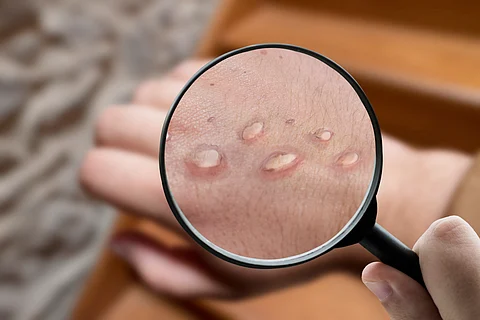

The World Health Organization (WHO) on October 29, 2024 announced that it has activated the Global Health Emergency Corps (GHEC) for the first time in response to a recent mpox outbreak, signalling an urgent response effort to control the disease across multiple regions.
Africa has already reported over 15,600 mpox cases and 537 deaths this year.
Mpox, formerly known as monkeypox, is a viral infection caused by the MPXV virus, which primarily spreads through close contact. Symptoms typically appear within 21 days and include fever, headache, back pain, fatigue, swollen lymph nodes and a pox-like rash lasting two to three weeks.
The WHO founded the GHEC in 2023 to address the shortcomings and issues uncovered during the COVID-19 response. It signifies a unified, worldwide initiative to optimise emergency assistance and guarantee prompt actions during health emergencies.
With its first mobilisation, the GHEC is aiding the Democratic Republic of the Congo (DRC) and other affected countries, deploying essential workforce expertise to support comprehensive strategies such as case detection, contact tracing, targeted vaccinations, clinical and home care, infection prevention, community engagement and logistics.
“The GHEC enhances the ability of the many effective responders at national and regional levels to collaborate and ensure the success on the ground in interrupting transmission and reducing suffering,” WHO’s Health Emergencies Programme Executive Director Dr Mike Ryan commented.
In 2022, WHO had classified mpox as a public health emergency of international concern (PHEIC). On August 14, 2024, WHO Director-General Dr Tedros Adhanom Ghebreyesus again declared the recent mpox outbreaks as a PHEIC and the GHEC was tasked with rapidly assessing the capacity of health systems in the hardest-hit areas. WHO had also asked pharmaceutical manufacturers to assess their preparedness in providing diagnostic tests to affected populations.
Mpox cases have been reported in 18 African countries this year, with the fast-spreading clade 1b strain also appearing in other global regions. India has become the third country outside Africa, besides Sweden and Thailand, to report a case of the more lethal clade 1b of mpox in September.
GHEC has completed assessments across eight affected countries, including the DRC and Burundi, identifying 22 critical areas for improvement in response capabilities, such as surveillance, laboratory resources, infection control and community outreach, in partnership with the International Association of National Public Health Institutes.
By October 17, WHO had deployed 56 experts to support affected countries. “By mobilising trained professionals from within the continent, we ensure that responses are not only timely but also contextually relevant,” stated Dr Abdou Salam Gueye, Regional Emergency Director for WHO Africa.
As part of the GHEC activation, On October 22, technical leaders from affected nations joined forces with experts from other countries with prior mpox experience to discuss response measures, share best practices and coordinate efforts to stem the outbreak.